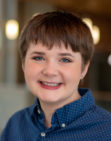There are many complexities alive in the creation of queer rural spaces, as queer youth negotiate their existence with their surrounding culture and make their own space for community. The monolithic notion of queer as an urban phenomenon is obviously incorrect and although queerness is not an urban coincidence, much media perpetuates this narrative through films like Brokeback Mountain. A strict dichotomy of urban and queer-friendly versus rural and queer-phobic subsequently provides a framework for the erasure of the existence of queerness in rural America. Not only does this dichotomy ignore queerness in these areas, it creates a system that defaults to an urban understanding of queer visibility and/or activism that queer lifestyles in the country may not support, depending on the surrounding social climate of the area. Regardless, queer youth find ways to build community and exist simultaneously within and on the margins of a restrictive heteronormative rural culture.
Overall, rural queer identity and visibility is complex and varies from the monolithic scope of homophobia and hillbillies perpetuated by the media and metronormative visibility. Queer rural folx resist different forms of heteronormativity than many urban queer people, so shifting their politics of visibility and queerness is necessary for their existence in rural America. The dichotomy of ‘invisible’ and ‘visible’ as well as ‘out’ and ‘closeted’ are blurred and take on new meanings of community building in these rural areas. Media plays the part of a double-edged sword, working to both perpetuate narrow ideas of rural queerness as well as provide a platform for queer community and exposure to rural queer youth; it simultaneously informs much rural queer visibility while also promoting a mainstream urban queer culture. In the end, while the monolithic myth of the foreboding and homophobic Appalachia may haunt the heads of urbanites, queerness has always existed and continues to exist in these areas, innovating ways to survive and thrive within the existing and evolving social structures.
“Queering Nowhere” is a project seeking to promote the voices and perspectives of queer rural Virginians, and it aims to bring light to some of their struggles with religion, location, family, and identity. As a queer woman from the rural south myself, I have seen a lot of intolerant behavior, some from rural spaces, other times towards them; it is time to recognize the nuances of these areas and their people. The intersection between these small communities and the lived experience of being queer in these areas is under-researched and can prove to be a complex web of conflicting emotions in relation to the intersectionality of identity.
The podcast’s first collaborator, Nolan, is a straight black transgender man and the second, Tess, is a white asexual panromantic nonbinary transgender person. In turn, as the interviewer, I would like to take a moment to acknowledge my white, cisgender, and class privilege through the completion of this project. Privilege can work as a blinder that makes anyone who holds it unaware to not only the life experiences of others who do not share those same privileges, but also basic systemic forms of oppression that work to benefit me, and others like me, while disenfranchising already marginalized people. I have worked very closely with both participants to ensure that they maintain as much agency in this process as possible; each has been an integral part of each step of the creation process, including approval of the audio and sometimes the editing itself. One further disclaimer, these stories are not representative of all people who share these identities nor are they from a similar geographical location.
Additional Reading
I’ve reference ideas from each resource listed here; if you would like to research on your own, I recommend Mary Gray’s “Out in the Country” chapter, “From Wal-Mart to Websites,” Katherine Schweighofer’s “Queering the Countryside: New Frontiers in Rural Queer Studies,” and Mattias Detamore’s “Queer Appalachia: Toward Geographies of Possibility.” These three readings focus on queer visibility in the rural south, but more specifically Appalachia. Gray’s reading follows multiple queer rural youth in their quest to find and create solidarity, community, and visibility. Schweighofer’s article primarily focuses on the political implications and limitations of the metaphorical closet and its relation to queer rural community building and visibility. Finally, Detamore’s chapter explores the implications Appalachia has on queer people and their place-making within existing social structures. All three articles discuss various complexities of queering rural spaces, and together they offer a more comprehensive insight on the queer rural experience.
Detamore, Mathias J., “QUEER APPALACHIA: TOWARD GEOGRAPHIES OF POSSIBILITY” (2010). University of Kentucky Doctoral Dissertations. 57. https://uknowledge.uky.edu/gradschool_diss/57
Gray, Mary (2009). “From Wal-Mart to Websites: Out in Public.” In Out in the Country: Youth, Media, and Queer Visibility in Rural America. New York University Press.
Schweighofer, Katherine. (2016). “Rethinking the Closet: Queer Life in Rural Geographies.” In Queering the Countryside: New Frontiers in Rural Queer Studies. New York University Press.
Additional Credits
I’d like to thank my participants, Tess and Nolan, thank you so much for opening up and sharing your stories and experiences. This project would not have been possible without you. Further, thanks to senior producer, Emily Gadek, and editor, Kelly Jones for lending expertise and guiding me through my first podcast project. Finally, thank you to Professor Federico Cuatlacuatl, without your recommendation and continuous support, I would not have even had this opportunity. A huge thank you to the Religion, Race & Democracy Lab for offering this opportunity and supporting this project.
This project was made possible with funding from

Get Involved
Learn about forthcoming podcast episodes, newly published projects, research opportunities, public events, and more.
Potential Students


